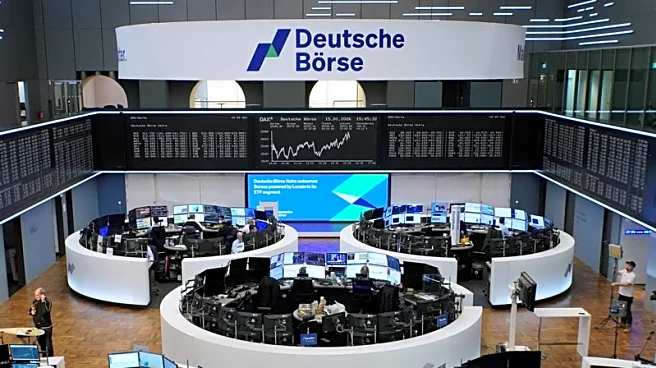Rapid Read • 8 min read
President Trump has decided to keep the tariffs imposed last week on various countries, as stated by Trade Representative Jamieson Greer. These tariffs include a 35% duty on goods from Canada, 50% for Brazil, 25% for India, 20% for Taiwan, and 39% for Switzerland. Despite ongoing trade negotiations, Greer indicated that these tariffs are unlikely to be reduced. The tariffs were set as part of a presidential executive order, and while some rates have been lowered in previous negotiations, the current tariffs are expected to remain unchanged. Greer also mentioned that recent trade talks with Beijing have been positive, focusing on the supply of rare earth magnets and minerals.
AD
The decision to maintain tariffs has significant implications for international trade relations and economic dynamics. Countries affected by these tariffs may experience increased costs for exporting goods to the U.S., potentially leading to trade tensions and retaliatory measures. The tariffs could impact industries reliant on imports from these countries, affecting supply chains and pricing. The focus on rare earth magnets and minerals in talks with China highlights the strategic importance of these materials in technology and manufacturing sectors. Maintaining tariffs could influence global trade patterns and economic policies, affecting stakeholders across various industries.
As trade negotiations continue, stakeholders will be closely monitoring any developments or changes in tariff policies. Countries affected by the tariffs may seek diplomatic or economic measures to address the impact. Businesses reliant on imports from these countries may need to adjust their strategies to mitigate costs. The ongoing talks with China regarding rare earth materials could lead to agreements that affect supply chains and industry dynamics. The situation remains fluid, with potential for further negotiations or policy shifts.
The decision to maintain tariffs raises questions about the broader implications for international trade relations and economic diplomacy. The tariffs could influence geopolitical dynamics, as countries navigate the complexities of trade policies and economic interests. The focus on rare earth materials underscores the strategic importance of these resources in global technology and manufacturing sectors. The situation may prompt discussions on trade policy, economic strategy, and international cooperation.
AD
More Stories You Might Enjoy













